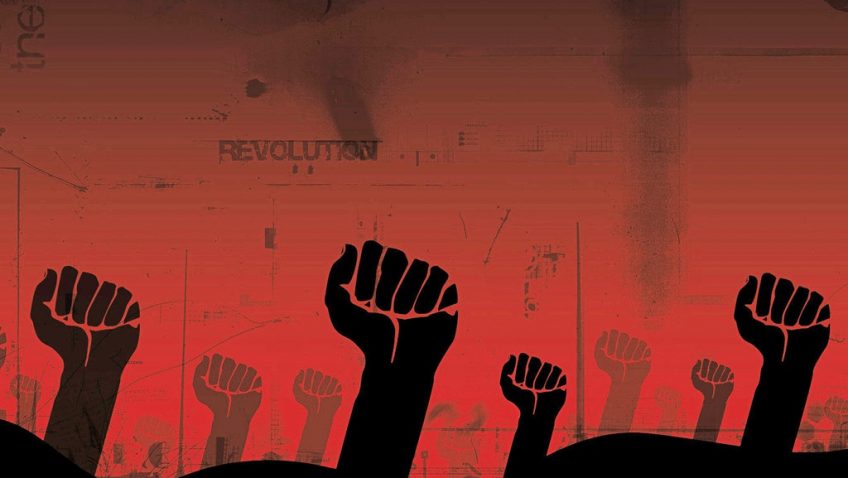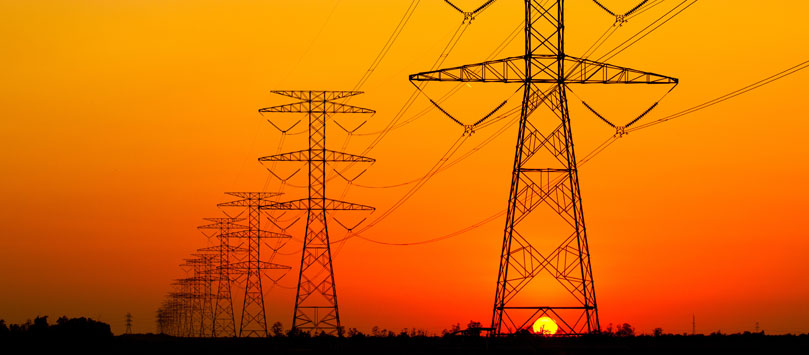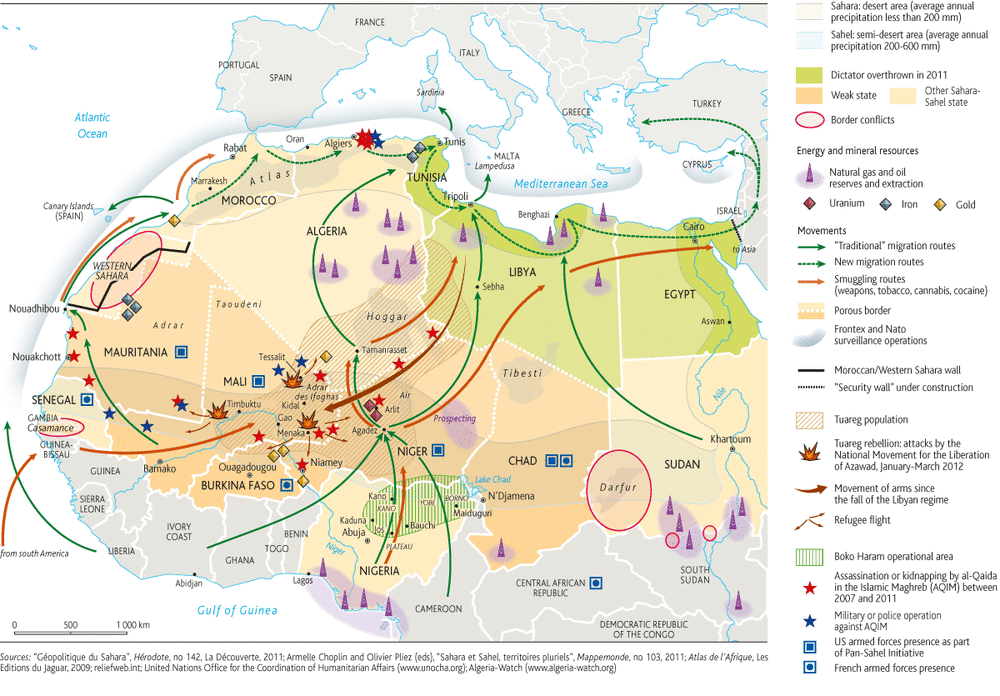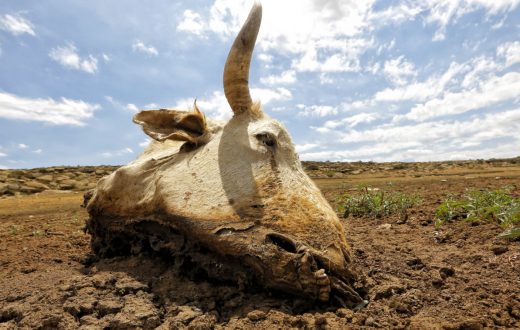Here’s the second part of our article about the next revolution in Africa!
Secessionist sentiments as pre-existing conditions
Of course, Africa distinctly remembers the great events that sparked off the Arab Spring in 2010. Bolstered by the flames on social media, once the wind of political revolution spread from its origins in North Africa, and blew eastwards into the Arab World. I doubt the impact and outcome of that revolution would have been any different if the winds blew southwards into Sub-Saharan Africa instead.
As taken from the Anatomy of Revolution; a book by Crane Brinton, perhaps we have all the pre-existing conditions that could lead to revolutions in Africa:
- Many African people feel restless and held down by unacceptable restrictions in society, as they are hopeful about the future, but they are being forced to accept less than they had hoped
- They are beginning to think of themselves as belonging to a social class, and there is a growing bitterness between social classes.
- Some African governments do not respond to the needs of its society, and the leaders of these governments and the ruling class begin to doubt themselves. Hence, some join with the opposition groups.
- Most of these governments cannot organize its finances correctly and is either going bankrupt or trying to tax heavily and unjustly.
The Anatomy of Revolution, which was published in 1938, is still one of the leading ideas on what commonly causes revolution and what occurs after it.
Based on these pre-existing conditions; perhaps you have been wondering why one of the main stories of the last decades is an upsurge of secessionist sentiment in several African states such as Sudan, Central African Republic {CAR}, Cameroon, Nigeria and Kenya. Significantly, while the demand for the creation of a separate state has complex roots as we have seen in South Sudan, in each case it was triggered by perceptions of political exclusion. Although all these voices have very different dynamics and motivations, they have all led to protests and met with a hostile state response. Perhaps, somewhat paradoxically, they are also movements that don’t really want to secede, in each case; many opposition leaders across the continent are using the threat of separation as a way to highlight and contest their political exclusion. Nonetheless, unless some of their demands are met, secessionist sentiment is likely to harden in countries like Sudan, Mali, Cameroon, Mauritania, Chad, CAR, Ethiopia, Katanga region in the Democratic Republic of the Congo and Nigeria, undermining national identities and paving the way for future geopolitical crises in the continent as long as the current governments won’t be able to respond to their legitimate demands.
Achievements and failures of economic reforms
It perhaps could be quite a nail-biting time for you wondering what will fuel the secessionist sentiment most. Of course, tribal and political corruption in addition to the achievements and failures of Africa’s neoliberal economic policies in some sub-Saharan African governments will also have a disastrous effect as it will increase more economic hardship and push more African young people towards revolutions. Even though most of these revolutions will take a peaceful shape in the begging, however, it will end up in a bloody result in many sub-Saharan African states – in oil producing countries, particularly.
Africa’s experience with neoliberal economic policy presents a classic example of a state which progressively shifted from a relative welfare state to glutinous state. Neoliberal reforms will not be concerned with social issues but with market efficiency, which will work against the basic tenets of human rights and constitutional safeguards for the next generations. Hence, a considerable young African people will resort to dynamic activities in the nation and turn against their own local governments.
Sometimes the desperate act of a single suicidal inflammatory protester like vegetable salesman Mohammed Bouazizi in Tunisia, back in December 2010, catches the imagination of a country.

However, this is not what is going to happen in sub-Saharan Africa’s revolutions – obviously it will take different shape and color, and it will perhaps start somewhere in the East or West Africa first. Unfortunately, most of these revolutions will be collapsed in its first decade for some ethnic and global reasons. Simply, because what collapses a regime in Africa is when insiders turn against it. So long as army, police and senior officials think they have more to lose by revolution than by defending a regime, then even mass protests can be defied and crushed.
Role of the international community
In this dynamically changing Africa, the crisis of American-Russian leadership competition could become the crisis of an African and global stability as Europe is not going to keep silent. Yet in the foreseeable future no state or combination of states can replace the linchpin role China and Europe play in Africa. Neither the role America plays in the international system. Hence, the revolutions will absolutely take international proxy conflicts. Consequently, there will be no global recovery. The only alternative to a constructive American role is global chaos in the African continent – in this context – my analysis based on the current environmental, social and political impact of some multinational companies operating in Africa is well known, especially when it comes to the extraction of natural resources and bribing governments to secure lucrative contracts.
Meanwhile, highly authoritarian countries like Djibouti, Gabon, Guinea-Bissau, Mauritania, Rwanda, Swaziland, Chad, Togo and the rest of the Francophone African states will probably unify to re-establish a shared sense of purpose between America and Europe in order to manage such revolutions. However, Russia will put some foot in the heart of Africa, perhaps in Bangui particularly, in order to get ready for her big African move. To that end, informal but frequent top-level consultations will badly be needed, even though we are all aware that there is no such thing yet. However, the only practical solution will be to cultivate a more deliberate dialogue among the U.S. and the three European countries that have a global orientation in Africa; Britain, France and Germany.

This will underline a significant distinction with Russia. Like Beijing and Moscow wish to revise international patterns, but it will tend to be frustrated, impatient and sometimes even threatening. Nonetheless, it will never be in the interest of the U.S. and of Europe to engage China and Russia in such revolutions. In so doing, America will seek agreements that enhance stability, promote democracy and nuclear weapons reduction in order to deal with such regional problems.
In this new world order, perhaps America and Europe will have to find a way of reaffirming their commitment to the integrity of Africa while conveying to China and Russia that their interest in these states relates to the gradual construction of a larger democratic Africa and is not designed to threaten China itself or its interest in Africa.
Thus, there is great caution in dealing with the prospective revolution in its strategic African dimensions. With the historical ignorance that has taken place in Somalia and Libya, perhaps there are those who think that it is possible to deal with any future conflicts as was dealt with in previous cases. However, this is not the case this time. In any case, the payment of the bill to leave Somalia has started by the ongoing piracy operations. Sudan and Libya were not Somalia, where there are huge resources already, large population blocs, and ports on major African countries. The issue in the end is that the danger cannot be ignored and it is time to deal with it wisely and courageously; this is a message to everyone who cares about this planet!
Role of the African Diaspora
Going by the trend of the new political awakening that will lead up to Africa’s next revolutions, and as long as a return to the home country is part of the migration strategy, already most serious scholars believe that most of African migrants will return to their home countries. An important contextual factor which is growing in significance as the new African Diaspora grows in influence as a constituency whose influence is refracted back into the domestic political processes unfolding in different countries.

The process of the constitution of this new Diaspora is recent and still on-going as a wave of professionals, many of them still in their prime, migrate for a variety of reasons to Europe and North America at the same time as many who left temporarily to study abroad also choose to stay back. Even though their role seems to be invisible in the continent, however, their weight in lobbying around issues of political, economic, social reforms and human rights in their host countries is growing and their voice in the affairs of their home countries reverberates among some important constituencies. It is a mark of their growing influence that a formal recognition has been conferred on them by the African Union. Therefore, their contributions will eventually play a big economic and intellectual role in such prospective revolutions.
Concluding Remarks
So let me end my remarks by asserting simply, in looking for alternative interpretative frames for understanding the new patterns of economic, social and political developments in the continent, it is important, as a starting point, to keep in mind that revolution is a continuous process. It is also not always radical – in most cases, it is gradual, often incomplete, certainly far from being perfect or total, and is sometimes even unpredictable. However, it is going to happen soon; because we recently have seen elections that didn’t look like elections in the continent and coups that didn’t look like coups. In this sense, it was an era of total illusions and confusions that need more serious studies.
It is my fundamental belief that all of these dynamic transformations of Africa will ultimately lead to ethical, social and political revolutions that will place new political leadership in the hands of the continent’s furious youth, instead of risking everything with their lives in search for a better life in the West.
This article has been written by our brilliant YoungDiplomats leader in Africa : Idriss Zackaria !








